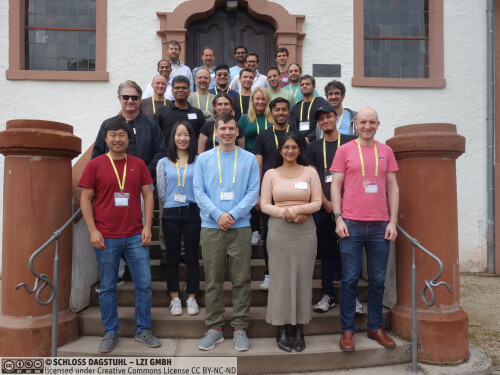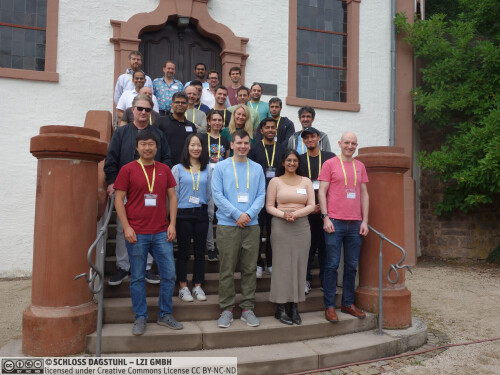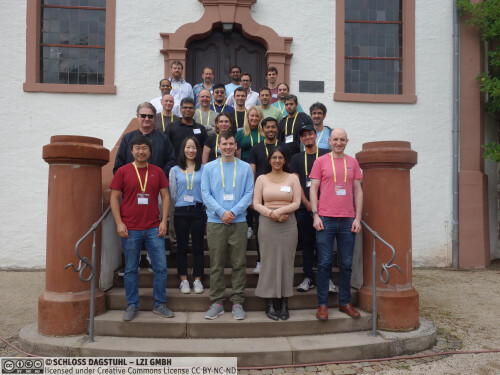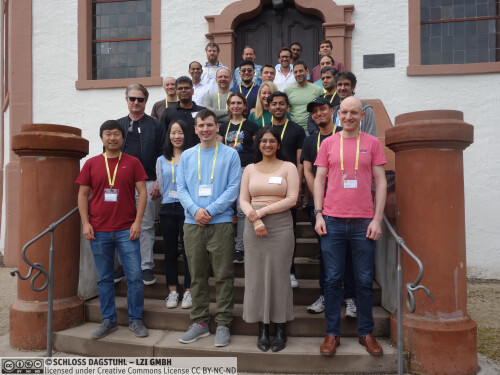Dagstuhl-Seminar 24362
Next-Generation Secure Distributed Computing
( 01. Sep – 06. Sep, 2024 )
Permalink
Organisatoren
- Christian Cachin (Universität Bern, CH)
- Aniket Kate (Purdue University - West Lafayette, US & Supra Research - West Lafayette, US)
- Julian Loss (CISPA - Saarbrücken, DE)
- Kartik Nayak (Duke University - Durham, US)
Kontakt
- Michael Gerke (für wissenschaftliche Fragen)
- Simone Schilke (für administrative Fragen)
Gemeinsame Dokumente
- Dagstuhl Materials Page (Use personal credentials as created in DOOR to log in)
Programm
Trust in a single or a group of parties is fundamentally needed to design any secure system. A common approach to establishing this trust is to use secure distributed computing (SDC) protocols. In this approach, systems rely on multiple different communicating parties and the correct behavior of a subset of those. Several SDC primitives are used in practice underneath a wide array of other cryptographic primitives and applications. Examples include blockchains, decentralized oracles, random beacons, and primitives such as threshold signatures.
The formal models for such systems' security/correctness guarantees were introduced in the 80s and 90s and have been used ever since. However, ever-evolving software, (trusted) hardware, and communication infrastructure present new threats, attack vectors as well as opportunities that often fall outside the scope of these classical security models. Therefore, it is necessary to revisit and reevaluate these system models and threat assumptions in today's distributed systems context.
Moreover, tremendous growth in the cryptocurrency space demands high-performance solutions that scale to billions of users. It also introduces fascinating new challenges related to fairness, incentive compatibility, and crypto-economics that have received comparatively little attention in the existing literature.
This Dagstuhl Seminar will reveal and exploit synergies in the fields of cryptography, distributed computing, game theory, and systems to identify promising new application domains for SDC. These topics are directly motivated by discussion and collaborations with the blockchain industry as well as emerging IoT needs. The goal of this Dagstuhl Seminar is to bring together researchers from these distinct communities, identify gaps and overlaps, and foster future collaboration.
 Christian Cachin, Aniket Kate, Julian Loss, and Kartik Nayak
Christian Cachin, Aniket Kate, Julian Loss, and Kartik Nayak
Please log in to DOOR to see more details.
- Ittai Abraham (Intel - Petah Tikva, IL) [dblp]
- Georgia Avarikioti (TU Wien, AT) [dblp]
- Renas Bacho (CISPA - St. Ingbert, DE) [dblp]
- Adithya Bhat (Visa USA - Foster City, US)
- Sourav Das (University of Illinois - Urbana-Champaign, US)
- Nico Döttling (CISPA - Saarbrücken, DE) [dblp]
- Sisi Duan (Tsinghua University - Beijing, CN) [dblp]
- Bryan Ford (EPFL Lausanne, CH) [dblp]
- Juan A. Garay (Texas A&M University - College Station, US) [dblp]
- Neil Giridharan (University of California - Berkeley, US) [dblp]
- Aniket Kate (Purdue University - West Lafayette, US & Supra Research - West Lafayette, US) [dblp]
- Aggelos Kiayias (University of Edinburgh, GB) [dblp]
- Andrew Lewis-Pye (London School of Economics & Political Science, GB) [dblp]
- Chen-Da Liu-Zhang (Hochschule Luzern - Rotkreuz, CH & Web3 Foundation - Zug, CH) [dblp]
- Giuliano Losa (Stellar Development Foundation - San Francisco, US) [dblp]
- Julian Loss (CISPA - Saarbrücken, DE) [dblp]
- Tal Moran (Reichman University - Herzliya, IL) [dblp]
- Kartik Nayak (Duke University - Durham, US) [dblp]
- Matthieu Rambaud (Télécom Paris, FR)
- Filip Rezabek (TU München - Garching, DE)
- Mohammad Sadoghi (University of California - Davis, US) [dblp]
- Alin Tomescu (Aptos Labs - Palo Alto, US) [dblp]
- Sophia Yakoubov (Aarhus University, DK) [dblp]
- Sravya Yandamuri (Duke University - Durham, US) [dblp]
- Fan Zhang (Yale University - New Haven, US) [dblp]
Klassifikation
- Computer Science and Game Theory
- Cryptography and Security
- Distributed / Parallel / and Cluster Computing
Schlagworte
- Distributed Computing
- Cryptography
- Game Theory
- Blockchain





 Creative Commons BY 4.0
Creative Commons BY 4.0
